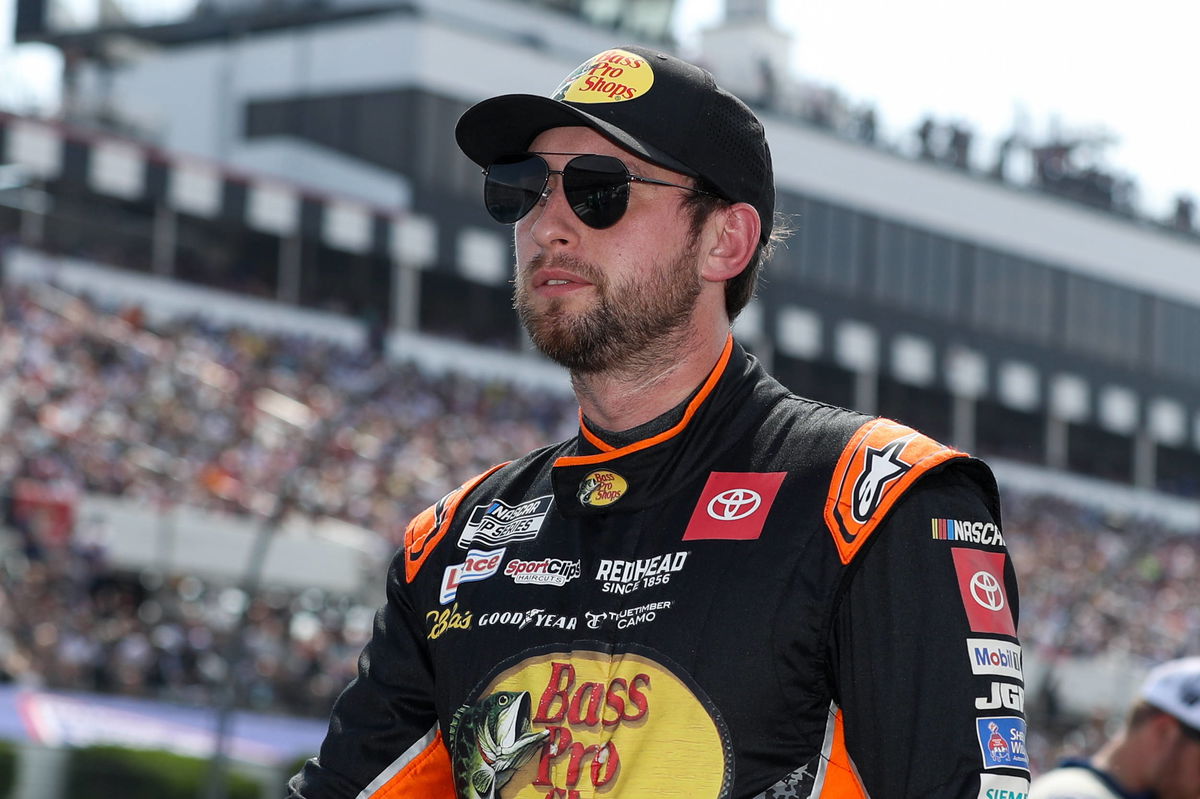
Imago
NASCAR, Motorsport, USA NASCAR Cup Series Race at Pocono Jun 22, 2025 Long Pond, Pennsylvania, USA NASCAR Cup Series driver Chase Briscoe walks on pit road prior to the start of The Great American Getaway 400 at Pocono Raceway. Long Pond Pocono Raceway Pennsylvania USA, EDITORIAL USE ONLY PUBLICATIONxINxGERxSUIxAUTxONLY Copyright: xMatthewxO Harenx 20250622_cec_bm2_273

Imago
NASCAR, Motorsport, USA NASCAR Cup Series Race at Pocono Jun 22, 2025 Long Pond, Pennsylvania, USA NASCAR Cup Series driver Chase Briscoe walks on pit road prior to the start of The Great American Getaway 400 at Pocono Raceway. Long Pond Pocono Raceway Pennsylvania USA, EDITORIAL USE ONLY PUBLICATIONxINxGERxSUIxAUTxONLY Copyright: xMatthewxO Harenx 20250622_cec_bm2_273
For more than a decade, NASCAR’s championship format has stirred debate across the garage. Since 2014, the sport has crowned its champion in a single “winner-take-all” finale. The highest finisher among four title contenders takes home the trophy, but critics argue that it can undercut season-long dominance. Kevin Harvick’s 2020 campaign remains the starkest example. After 9 wins, 20 top-five finishes, and 27 top-tens, he failed to reach the Championship 4 when a poor run at Martinsville ended his title hopes. Such outcomes continue to fuel calls for a format that rewards consistency as much as clutch performance. And now, this debate has found a bold voice in Joe Gibbs Racing driver Chase Briscoe. Briscoe recently made his stance clear, but he isn’t the first to do so.
Watch What’s Trending Now!
Amidst these talks, some insiders believe revision is not only possible but necessary. Jeff Burton has defended the legitimacy of recent champions while admitting he is “open to format change.” Dale Earnhardt Jr. has also floated the idea of a three-race final to balance fairness with drama. These discussions gained further traction in 2024 when Joey Logano won the championship with 4 wins and a 17.1 average finish. Meanwhile, Kyle Larson’s 6-win season failed to carry him into the Championship 4. Situations like these sharpen the question of whether a single-race decider truly identifies the best driver. That question is exactly where Chase Briscoe has now taken a surprising stand ahead of the Bristol race.
Chase Briscoe has a unique stance for crowning a NASCAR champion
Briscoe began on a recent podcast by conceding the upside of the current format. “I like the one-race thing from the drama standpoint. You get that legit ‘Game Seven’ feeling where you have to perform.” For fans and TV networks, that do-or-die spectacle is hard to replicate. But he also pointed to the inherent risk of hanging a year’s worth of work on a one-race weekend. Especially in a sport where mechanical failures or one miscalculated setup can undo months of preparation. His words positioned him as one of the few active drivers to publicly straddle both sides of the issue.
He then expanded on his alternative take, his preferred one, explaining, “Whereas if it’s a three or four-race format, it’s not harder to win but you have to be more consistent and elevate your game for four weeks in a row.” A multi-race finale, Briscoe argued, would showcase adaptability across different track types. It would reduce the chance of one team benefiting disproportionately from Phoenix’s mile-long oval. The proposal mirrors playoff structures in other sports, where champions must sustain excellence over multiple contests.
To underline his concern, Briscoe invoked a striking scenario. “Realistically, you could win the first 35 races of the year and then blow up on lap one of the final race and finish fourth in the championship.” While hypothetical, the fear is not unfounded. Harvick’s 2020 elimination and Larson’s 2024 playoff exit showed how the current system can punish season-long excellence. For Briscoe, a four-race finale would allow misfortune to balance out over time. This would ensure the champion reflects consistency as well as peak performance.
Where does Chase Briscoe stand on the race length debate? pic.twitter.com/SLoNjnWHT2
— Rubbin is Racing (@rubbinisracing) September 12, 2025
For now, NASCAR must weigh those concerns against the undeniable ratings boost of its “Game Seven” finale. Reports suggest a multi-race championship is among the proposals under discussion for 2026. But the sanctioning body must reconcile fan appetite for drama with competitor calls for fairness.
Briscoe’s unexpected take may not trigger an immediate overhaul. Yet, it underscores a pivotal moment in NASCAR’s evolution.
Briscoe’s push fuels NASCAR format debate
Chase Briscoe’s comments on the playoffs suggest that change for the 2026 playoffs is no longer just talk. Mike Forde, NASCAR’s Managing Director of Racing Communications, revealed on the Hauler Talk podcast that the playoff committee is meeting “mid-week next week.” This meeting is to review a shortlist of potential format changes and hope to select “one final format.”
Much of the discussion stems from the fallout of Joey Logano’s 2024 championship. This raised questions among fans and insiders. NASCAR President Steve O’Donnell recently addressed this issue. He stated, “If the one-race final remains, we will need a strong rationale… Otherwise, we are open to format changes that maintain excitement, reward consistency.” Simulations of alternate formats are being run, and feedback is being collected from fans and stakeholders alike to address this issue.
Among the proposed options is a four-race final round, the way Briscoe suggested. This would replace a single winner-take-all championship race. Under one idea, NASCAR would follow the traditional 16-driver playoff start. Then, they would eliminate after rounds. Then the last four would compete across four races to decide the champion, likely via points accumulation.
Another concept being considered is altering the elimination structure more drastically. This would include starting with perhaps 10 drivers. Then, cutting more slowly (or in different intervals), and having the final bunch compete over multiple events. These proposals aim to reduce the risk that a single bad weekend can overshadow a season’s worth of performance.
If the committee does adopt a new format, it would mark the biggest structural change to NASCAR’s playoff system. This system hasn’t changed since 2017. NASCAR officials, including President Steve O’Donnell, have said that if they retain the one-race final, they will need to provide a strong rationale to stakeholders. Fans can expect an announcement or narrowed format options soon, but details such as how many races in the final round, or how points might be weighted, are still unsettled.








